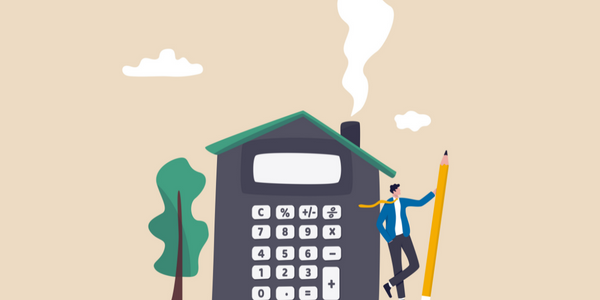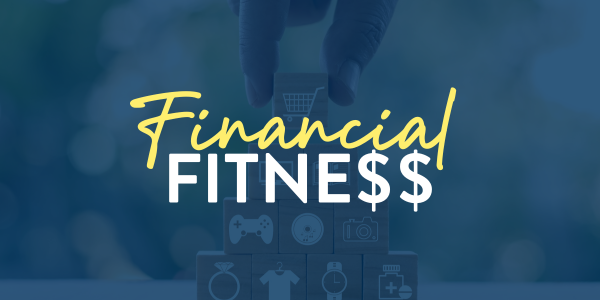
Your credit score is an important factor when it comes to buying a home. That’s because it gives your mortgage lender a snapshot of how responsible you’ve been as a borrower through your payment history—which means they can gauge how responsible you’re likely to be as a borrower going forward.
A higher credit score not only improves your chances of loan approval but also qualifies you for lower interest rates, which can save you thousands of dollars over the life of your mortgage. A good credit score also shows lenders that you’re capable of managing debt wisely, making you a more attractive candidate for financing. That’s why it’s essential to monitor and improve your credit score before you start the homebuying process.

Here’s the thing, though: The housing doors don’t swing shut simply because your credit score is less than perfect. There are plenty of programs out there that can assist lower-credit borrowers, and APM has the inside track on all of them.
If you have a little time before you buy a home, though, it’s not a bad idea to try to raise your credit score before applying for a loan. Below are a few strategies to improve your credit score.
Check Your Credit Report
Don’t wait until you’re applying for a mortgage to discover that your credit score isn’t where you want it to be. You’re entitled to one free credit report from each of the three main reporting agencies, which you can obtain for free at AnnualCreditReport.com.
Be sure to go over these reports as thoroughly as possible, noting anything that may be inaccurate, questionable, or confusing. You can then contact that credit bureau or card issuer for more information. Clearing up any errors can improve your score, so don’t skip this step.
Reviewing your credit report from time to time can also help you track your progress and understand the factors that are affecting your score. Look for any accounts that are overdue, as these can greatly impact your creditworthiness.
If you identify any fraudulent accounts or hard inquiries that you didn’t authorize, be sure to dispute them immediately. By staying proactive and informed about your credit report, you’ll be in a much better position to improve your credit score before applying for a mortgage, giving you greater peace of mind and confidence in your financial decisions.
Pay Your Bills on Time
Nothing affects your credit score quite as much as making on-time payments. Your credit payments represent about 35% of your credit score.
Think of your credit score like a diet. It doesn’t make sense to throw the entire diet out the window because you ate a few chips. The smarter choice is to course-correct and vow to do better next time. One late payment shouldn’t lead to another and then another because you think your credit score is blown anyway.
While these late payments will ding your credit, committing to doing better will have a much larger impact on your score. So do whatever you can to pay your bills before their deadlines. Use email or calendar reminders that alert you well before a payment is due.
Or, if possible, set up auto-pay for all your bills. This takes the legwork out of the process, though you do have to make sure your bill is accurate and that you have the funds in your account to cover the auto-debit. You also have to update your payment information anytime you switch banks, update credit cards, or deal with a lost or stolen credit card.
Reduce Your Debt Load
Paying down high credit card balances can certainly increase your credit score. Aim to keep your credit utilization ratio below 30%. This means you should use only 30% or less of your available credit limit on each credit card account.
If you’re tackling credit card debt, you can either consolidate your debts into one streamlined monthly payment or focus on paying down the cards with the highest credit utilization ratios.
For example, if you’ve used 85% of your AmEx limit, you’ll want to tackle that before you put any extra money toward your auto loan. Of course, that doesn’t mean you should stop paying your auto loan entirely. It simply means that any extra funds and attention should go toward the AmEx bill to get that credit card balance down.
Additionally, consider setting up a budget that allocates an automatic payment with a specific amount each month for debt repayment. This can help ensure that you stay on track and avoid new debt.
Regularly monitoring your progress can also provide motivation as you see your balances decrease and your credit score improve. By being proactive and disciplined in managing your debt, you’ll enhance your creditworthiness over time.
Manage Cards and Accounts Responsibly
Having a mix of different types of credit, like installment loans and revolving credit accounts from different credit card companies, is a great way to build credit. But it’s still important to manage your credit mix and debt responsibly.
So what does a “responsible account holder” look like? It looks like someone who doesn’t max out their credit accounts. Someone who makes their monthly payments—including auto loans, student loans, credit card balances, and other debts—on time consistently. This person also keeps their balances low, therefore keeping their credit utilization ratio low.
Another thing you may not know about this “responsible account holder” is that they also keep their paid-off credit cards open. It might sound—and feel—so good to close out that credit card that took years to pay off. We understand, but that’s actually the opposite of what you want to do.
Closing a credit account hurts your score. It also lowers the total amount of credit available to you, which could end up increasing your credit utilization ratio. You don’t have to keep those unwanted credit cards in your wallet, of course, but keep the accounts open.
If you extend this logic, it’s easy to think that maybe the key to a good credit score is opening more credit accounts. That increases how much credit is available to you, right? It does, but at a cost: The credit checks it requires will hurt your score.
Lenders can also see that you applied for multiple lines of credit within a short time frame, which is kind of a red flag for them. Don’t close any accounts that are already open, but also don’t open any new accounts that you don’t need.
Reestablish Your Credit History
We’re here to tell you something you’ve been waiting to hear since high school: You can totally repair your reputation! Collection accounts and bad credit do not have a negative impact forever. You can leave your past issues with credit in the past.
You do that by reestablishing a good credit history. Pay your balances on time, and pay down higher credit limits if you have existing cards and balances.
If you’ve sworn off credit cards, it may be a good idea to apply for one or two to show that you can manage your debt. People with significant credit issues can always start with a secured credit card that requires a deposit. Place a few monthly bills or household expenses on those cards instead of paying with cash, check, or a debit card—just don’t go crazy.
Remember, you’re trying to move forward, not backward. That means you should not even carry those cards with you if the temptation to use them is too great. Sign up for automatic payments on your bills, and leave the credit cards themselves in the back of your closet.
If you’re serious about improving your credit score in a short time frame, here are a few other things you can do:
- Limit “hard” credit inquiries: These include applications for a new line of credit, such as a credit card, a mortgage, or a car loan.
- Beef up your credit file: Services such as Experian Boost or UltraFICO can improve your score by using your banking history in addition to any credit history. Other services will report your rent payments on your behalf, which can help your score.
- Deal with your past: Resolve delinquent accounts, charge-offs, or collection accounts.
- Monitor your credit: Many credit-monitoring services are free and can help prevent fraud or identity theft by alerting you to new activity.
Stay Committed to Improvement
Improving your credit score doesn’t have to be an overwhelming task. By following these simple tips, you can take meaningful steps toward enhancing your financial profile and position yourself for better mortgage options. A higher credit score can lead to more favorable interest rates and mortgage terms, saving you money in the long run.
Remember that when you improve your credit score, you open yourself up to a variety of options for improved interest rates and mortgage terms.
For more information on how to improve your credit, download APM’s free guide to understanding credit by clicking here. And if you’re ready to explore homeownership and need solutions or support improving your credit, click here to connect with an APM Loan Advisor in your area.
With a proactive approach and the right resources, you can pave the way for a successful homebuying experience.








